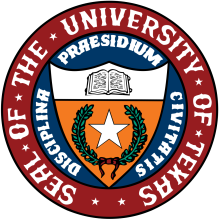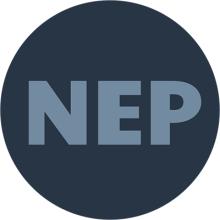PTF Impacts
Provost's Teaching Fellows have made lasting impacts in their departments, colleges and schools, all of the University of Texas, and even the broader scholarship of teaching and learning. Through both individual initiatives and university-wide programs, PTFs continue to serve as catalysts for positive change and further our campus culture of teaching and learning.
Displaying 1 - 19 of 19Doctor of Nursing Practice Program
For more information about the Doctor of Nursing Practice (DNP) program at UT Austin, visit the program's webpage: DNP Program at UT Austin
Bringing Introductory Astronomy to a Broad Audience via Web-based Instruction
In 2024, I piloted a new web-based version of Astronomy 301 (Introductory to Astronomy), and taught it a second time in 2025. I attempted to include best practices for active learning, which was a challenge in this environment.
Teaching Climate Change Canvas Module
A campus-wide faculty learning community constructed a canvas sandbox website where we could share materials related to climate change, with annotations, with the broader UT community. We collected our groups materials, and tried to organize them in a useful way. This includes lectures, activities, quizzes, projects, pre/post tests, etc. We organize both by learning objective, and by course. Our website is now live. A publication on pre/post survey results is being prepared.

The Art of Mapping History (Life and Letters)
Life and Letters, the print and digital magazine of the UT College of Liberal Arts, featured ClioVis, the digital timeline visualization tool developed by Erika Bsumek's PTF initiative, in their November 2023 issue.
The Social Classroom (Chronicle of Higher Education)
For an article on the concept of the social classroom, exploring its impact on student interactions and learning, check out this piece from The Chronicle of Higher Education: The Social Classroom.
A Classics Podcast Gets Greek Greats Onto Your Phone (Life & Letters Magazine)
This profile of "Musings in Greek Literature" appeared in the Spring 2023 edition of Life and Letters, the magazine of the UT College of Liberal Arts. This article explores the podcast and its origins, which occurred spontaneously in a conversation with Adam Rabinowitz about experiential learning. At the time, Adam was a PTF, but I wasn't. I re-applied multiple times to the PTF program and was ultimately selected for this podcast project in large part because of Adam's support and encouragement.

Supplemental Instruction (SI) Program for Electrical and Computer Engineering
For her Provost's Teaching Fellows initiative, Nina Telang developed of a Supplemental Instruction (SI) program in a sophomore-level Electrical and Computer Engineering course, EE319K: Introduction to Embedded Systems.
Supplemental Instruction (SI) study sessions to help students succeed in introductory courses by employing a peer teaching model. SI Leaders – TAs or peers who have already successfully taken the course – plan and lead two identical, voluntary SI sessions each week, which students can join at any point in the semester.

Teaching Teamwork Canvas Course
This is a Canvas page that contains videos, short assignments, and teaching notes for instructors in any discipline who would like to teach their undergraduates how to work together effectively in teams. The videos and assignments are student-facing and come with instructor guides on how to implement them in various classes. Completed video modules as well as supporting assignments can be found on Canvas
Please contact Dr. Holland to be added to the course.

ClioVis: Kendra Scott WEL Female Founder Competition Semi-Finalist and Crowd Choice Winner
The Kendra Scott Women's Entrepreneurial Leadership Institute (KS WELI) held the inaugural Female Founder Pitch Competition in October 2021.

Critical Literacies Project: ClioVis (UT System P20 Projects)
The UT System works with internal and external partners to foster critical literacies in students across the P20 continuum. UT institutions work to cultivate these literacies in students across traditional and emerging academic disciplines, and through partnerships and programs in PK12 schools, communities, and business and industry across Texas.

Digital Projects Enrich Undergraduate Research: ClioVis and Epoch (History Department News)
ClioVis, the digital timeline visualization tool created by Erika Bsumek as part of her PTF Initiative, was highlighted in UT Department of History News on May 25, 2020 by Dr. Megan Raby. The article explored the ways that ClioVis and Epoch, an initiative by History faculy Adam Clulow, are being used to create undergraduate research opportunities for UT liberal arts and history students.

Thinking Critically with ClioVis (Pedagogy Playground)
Dr. Lindsey Passenger Wieck, faculty at St. Mary's University in San Antonio, Texas, reviewed ClioVis for the pedagogy blog Pedagogy Playground: Innovative Teaching in Higher Education in February 2020. The review discusses her experiences with ClioVis during and after a workshop led by Bsumek, and goes on to highlight the features of the tool which she finds most compelling: interactivity, collaboration, ease of use, exportability, and applications outside of coursework.

Editor's Choice Award: ClioVis Description, Origin, and Uses (Digital Humanities Now)
"ClioVis: Description, Origin, and Uses," a September 2020 article from Not Even Past: the digital magazine of the UT Department of History, was awarded Editor's Choice by the online aggregate Digital Humanities Now.

Interview with Dr Erika Bsumek, the creator of ClioVis (Not Even Past, UT Department of History)
In September 2020 History faculty Adam Clulow interviewed Erika Bsumek for Not Even Past, the digital magazine of the UT Department of History, to discuss the development, use, and impacts of ClioVis, the digital timeline visualization tool created as part of Bsumek's PTF Initiative. This article is part of a wider series that explored how teachers and students across the History department, the university and world more generally responded in new ways to the unprecedented classroom environment faced in a time of global pandemic.
Standardized elements for OCSE
Objective Structured Clinical Examinations, known as OSCEs, are a widely established assessment practice in Pharmacy education. PTF Renee Acosta created OSCE rubrics as part of her PTF initiative to help students gain constructive feedback and more consistent practice of their skills prior to moving on to future courses. Acosta's rubrics that have since been used as the foundation for future PTF projects and other OSCE rubrics used within department.
View the rubrics here.

ClioVis Digital Timelines: Visualizing Connections
Erika Bsumek built the ClioVis digital timelines platform for instructors and students to build interactive digital timelines as part of their coursework or scholarly initiatives. The platform has been used by thousands of students across the US, including throughout the UT System, University of Michigan, Stanford, and others, in both humanities and STEM disciplines, as well as for research initiatives.

Health Communications Scholars Program
Launched in 2013, the Health Communication Scholars Program (HCSP) seeks to support graduate student research in health communication. HCSP was created by Dr. Mike Mackert within the Moody College of Communication and initially funded by the Provost’s Teaching Fellows program.

Entrepreneurship Minor, McCombs School of Business
As part of his PTF Initiative, Luis Martins founded the Entrepreneurship Minor within the McCombs School's Rosenthal Department of Management. The Entrepreneurship Minor is available to all undergraduate students at UT Austin, and develops entrepreneurial mindsets and skillsets that equip students to have impact on organizations and society as startup founders or as employees in established organizations.
Drama-based Pedagogy Interdisciplinary Faculty Learning Community
PTF Katie Dawson coordinated a Faculty Learning Community of six faculty members from across UT - American Studies, Biology, Art/Design, Classics, Education, and Theatre- in a 15 week faculty learning community focused on active and creative teaching strategies. Through the project, faculty members explored active and creative teaching methods in monthly meetings, and re-designed at least two lectures to use active/creative teaching approaches. Faculty also received individual coaching and observation from me or one of my graduate students.

